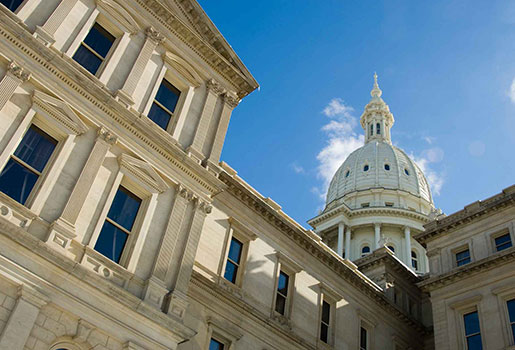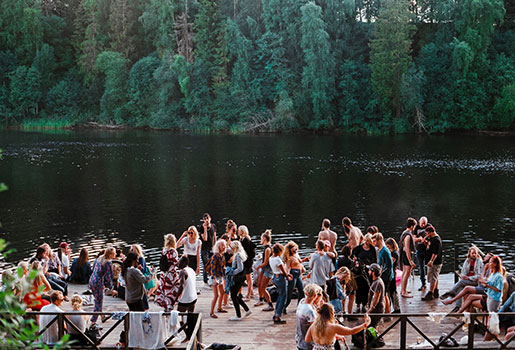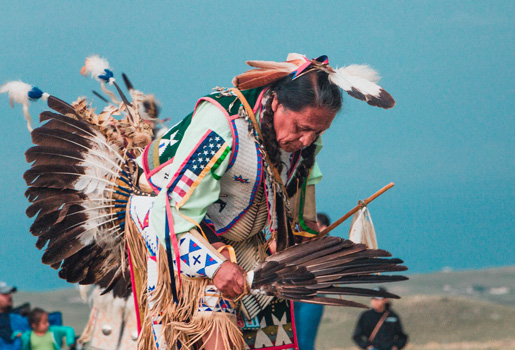Great Lakes Project Resources:
Your project may be more successful if you have partners. Partnering with other organizations, businesses or government agencies may help you obtain funding, share expertise, create a better project plan, spread the workload, and ultimately have a more successful project.
Partners with experience may be able to advise you on which regional action plans you should be considering aligning your project with. Often, there are management plans that have been developed for an area and projects are expected to align with those plans to be considered to be fundable. These plans may be local, regional, state or interstate. The Midwest Invasive Plant Network is a good place to start find this information and also to find contacts when building a team or finding an existing team.

These may be sponsored by your drainage or stormwater utility, public works department, natural resource agency, mayor’s office, or another local agency.
To find your local, state, or tribal governments, type the following into a search engine: your state/county and then the type of agency you are wanting to connect with (e.g. local government, tribal representative, state government). For example, search for “Alabama beach restoration permitting” or “New Jersey environmental protection.” Also, try using terms that relate to your concern or solution. For example, “Florida coastal flooding help.” Try different terms, or combinations of, terms, such as “grants, restoration, invasive species, marsh, natural resources, volunteers, funding, etc.” It may take a few tries to find the site and information you are looking for.
To find a specific local county office, type the following into a search engine: your local county or city and then the department you are wanting to connect with (e.g. environmental, planning, natural resources). For example, search for “Escambia County coastal management” or “Destin FL natural resources.”

Are there programs to restore your local estuary or coastline? Are there initiatives to help threatened or endangered fish and wildlife?
Many states have the following departments, divisions, or commissions, which you can use as internet search terms:
Many of these organizations are listed as members of the Association of Fish and Wildlife Agencies. Your state’s land-grant university may host a SeaGrant program or a Cooperative Extension Service related to agriculture, conservation. Extension agents can direct you towards helpful resources for your project type.

Environmental groups
Some may focus on local issues. Others may be local chapters of state or national organizations. Always ask if there is anyone else you should be talking to, and who their recommended contact is. Network!
Midwest Invasive Plant Network supports a network of organizations and communities who are working to eradicate invasive species in the Midwest and is an exceptional source of resources and educational materials. The MIPN supports the formation of Cooperative Weed Management Areas which are partnership organizations formed with the goal of managing invasive plants across jurisdictional and land-ownership boundaries.
Great Lakes Phragmites Collaborative links people, information, and action.
Michigan Invasive Species Coalition provides support to regional and local groups working to control invasive species in Michigan.
Lakeshore Invasive Species Management Area advocates for the comprehensive management of invasive species in the lakeshore area.
Alliance for the Great Lakes invasive Species Program is a nonpartisan nonprofit working across the region to protect the natural waters of the Great Lakes.
Tip of the Mitt Watershed Council has protected the water resources of Antrim, Charlevoix, Cheboygan, and Emmet Counties since 1979.
The Nature Conservancy’s Great Lakes Aquatic Invasive Species Program.
National Association of Invasive Plant Councils lists exotic pest plant councils by state.
Wikipedia lists environmental and conservation organizations in the United States.
Neighborhood organizations may be a resource for community outreach and volunteers.
Schools may be a source of volunteers.
Look for local businesses and business organizations that may have a stake in a cleaner environment.

Tribes and Indian Nations should be consulted about their interests in the area of the project.
Tribes and Indian Nations may have treaty rights that need to be observed and cultural resource concerns that apply to your project, especially if ground disturbance is involved in your project.
Tribes and Indian Nations often have resources that can help with your project. They often manage monitoring and research projects, and that information may be very helpful in the development of your project.
Contact the Tribe’s or Nation’s natural resource department early in the project. Click here for help finding recognized tribes and their leaders or here for help finding non-federally recognized tribes.
Learn more about partnering with Tribal Nations and incorporating Indigenous Knowledge.
We need your help to improve the Toolkit by completing our easy, 3-minute survey. Your insight is valuable to us.